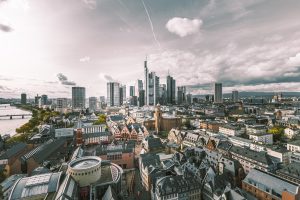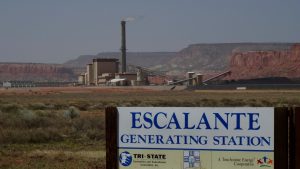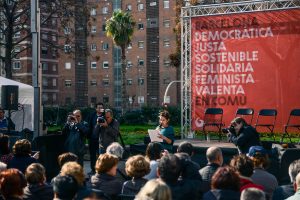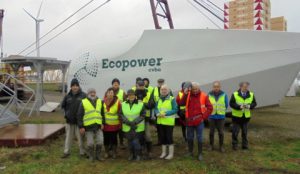
Frankfurt’s energy transition: Passive houses, a CO2 budget, and an app to collect residents’ ideas
Frankfurt am Main is one of the more densely built-up cities in Germany, known for its banking sector and home to one of Europe’s largest airports. The city is also the centre of Germany’s digital logistics: 80% of the country’s Internet traffic runs via servers in Frankfurt. With this multi-faceted economy, the city has more than 750,000 inhabitants and is growing rapidly.
It is vital for both citizens and the environment that Frankfurt becomes more climate friendly. The municipality’s goal is a 95% carbon emissions reduction by 2050 compared to 2010 and a halving of energy use in the same time frame. The administration has put multiple plans and processes in place to put the city on the right pathway, including a ‘Masterplan 100% climate protection’. There is a special emphasis on involving residents in the city’s transformation, for example through an app with which they can share their ideas and complaints directly with the municipality.



